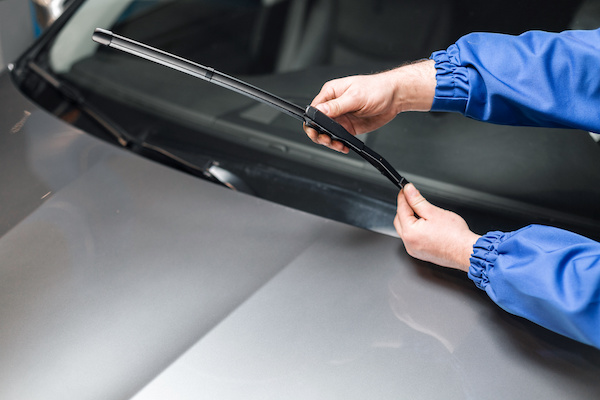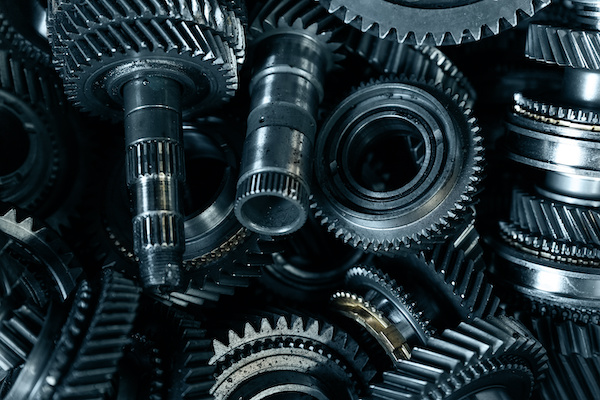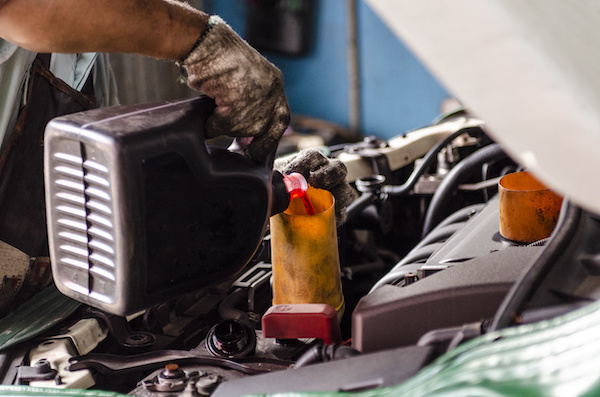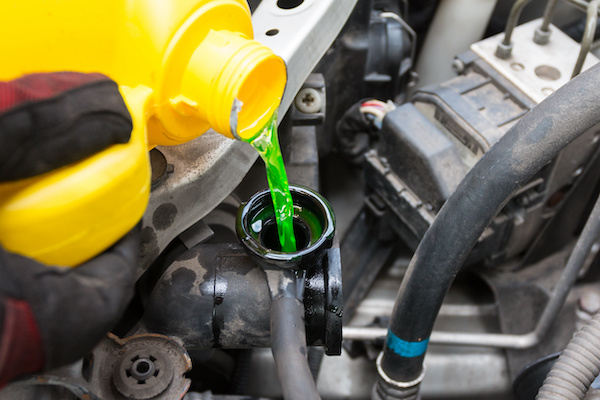Posted on 7/26/2022

When steam is gushing from your overheated bonnet, it is not only upsetting, but it may also be damaging to the engine. Vehicle's cooling systems are generally adequate. However, if the temperature gauge increases, the vehicle may be overheating. When your vehicle gets too hot, it's usually a sign that something is wrong with the cooling system. This could be a problem with the fan, radiator, thermostat, water pumps, coolant or hoses. Indications of overheating engine There may be smoke or steam emanating from underneath the hood. When the temperature indicator on your dashboard illuminates, as it does when it turns on. An unusual odor from beneath the hood. If your vehicle is overheating, it is important to know how to stay safe and avoid potential engine damage. Keep these five tips in mind. 1. Turn off the engine right away Drive to a safe spot off the road and shut off the engine. Engine damage might ensue if you continue to drive while the engine is overheated. Just ... read more
Posted on 6/27/2022

The first week of July is one of the busiest weeks of the year to travel in the US due to the holiday. Most people have vacations and trips planned, so the roads will be more crowded than usual. To help you get safely to your bonfire, pool party, fireworks show, concert, or family gathering, we’ve compiled this list of helpful tips for the Fourth of July: Plan out your travel time wisely - The roads will be especially busy late afternoon into early evening, and even night. If you need to run errands, make sure to get them all done early in the morning. Always buckle up for safety - This goes without question since it is the law. Make sure you and your passengers strap in the seat belts before going anywhere. Don’t drink and drive - Drinking and driving is a huge no-no. Don’t put yourself and others in danger. If you plan on celebrating with some drinks, make sure you have a plan to get home safely. Obey the speed limit - You may be in a hurry sometimes, but there ... read more
Posted on 5/26/2022
.jpeg)
Brake rotors are one of the most important parts of a car. They help you stop, but they also play a role in how your car handles. If your brake rotors warp, it can cause problems with your car, from decreased stopping power to uneven braking. So what causes brake rotors to warp, and how can you prevent it? Wearing Pads on the Rotor Surface One of the most common causes of brake rotor warping is wearing down the pads on the rotor surface. When you brake, your brake pads clamp down on the rotor and create friction. This friction is what causes your car to stop. Over time, though, the pads will wear down, leaving less material to create friction. It can cause the rotor to warp as it is not evenly clamped down. To prevent this from happening, it is important to regularly check your brake pads and replace them when they start to wear down. This will ensure that there is always enough material to create friction and prevent the rotor from warping. Improper Installation If the rotors are ... read more
Posted on 4/27/2022

Visibility while driving is essential to avoid accidents. However, it can be challenging to have a clear view of the road ahead, even with excellent eyesight, especially when driving through mud, sleet, snow, hail, and ice. Luckily, your windshield blades will help you with that. However, wiper blades are made of degradable material which wears out with time and use. But, how often should you replace your wiper blades? This article explains when you should replace wiper blades and how to tell they need replacement. How often should you Replace Windshield Wiper Blades? Many manufacturers will recommend you replace your wiper blades every six to twelve months. While this may be the general rule of thumb, you may need to replace them sooner, depending on how often you drive and where you live. Also, the frequency of wiper blades replacement varies depending on the type of blades. A good way to keep track of your wiper blades' condition is to have the mechanic inspect them when they ... read more
Posted on 3/28/2022

A transmission rebuild is typically needed when a transmission has many different parts that need to be replaced. A thorough inspection of the transmission will allow us to determine if a repair is needed, or something more major like a rebuild or overhaul. A rebuild will consist of removing the transmission entirely from your vehicle, replacing any necessary parts, cleaning the transmission, making any necessary updates, and then replacing the transmission back into your car. At our local auto repair shop, we are the trusted shop in the community for transmission rebuilds and overhauls. We know a major repair can be overwhelming to take care of, which is why we strive to make your transmission repair experience as convenient and hassle-free as possible. We have specialized in transmission repair and services for many years and proudly work on most makes and models of vehicles. Our technicians understand the ins and outs of transmissions and try to figure out the most cost effective ... read more
Posted on 2/25/2022

All cars, SUVs, and trucks have various essential fluids to keep their internal systems lubricated, cooled, and running. The primary fluids in every automobile include motor oil, transmission fluid, brake fluid, power steering fluid, coolant/antifreeze, and windshield washer fluid. If and when these fluids run low or get dirty/contaminated, your vehicle could suffer from multiple problems. The Importance of Fluid Maintenance Fluid maintenance is an essential aspect of your car's overall maintenance routine. A healthy practice that many experts recommend is checking your fluids frequently. Motor oil is arguably the most important out of all your vehicle's essential liquids. And it is changed the most often. The other fluids don't need to be topped off as frequently. There are two important terms that you should know when it comes to fluid maintenance: fluid change and fluid flush. While they are used interchangeably in some cases, the two services are dissimilar in ... read more
Posted on 1/11/2022

Your exhaust system will usually alert you with a series of symptoms when something's wrong with it. Since it's responsible for managing fumes inside and out of your vehicle, it can also impact your engine performance when something goes wrong. Below are the top signs that your exhaust system will exemplify if you require repairs. Foul odors When you smell gas or any strong chemicals surrounding your car, it often goes back to the exhaust system. For instance, the catalytic converter will produce a rotten egg smell if it needs repairs. Breathing in these toxic gases may not only be smelly, but it can be dangerous as well. Bad vibrations Random car vibrations can point to many things, and an exhaust leak is one of them. When you have an exhaust leak, it is merely impossible to drive your car safely. Please make sure you take your car to a repair shop right away. Check engine light A lit check engine light can indicate several problems, including the need for exhaust repair ... read more
Posted on 12/16/2021

It's December, which means the cold winter is on its way. Before anything else, you need to consider winterizing your vehicle. These steps are necessary to keep your vehicle performing its best during the cold months in Colorado Springs, CO. If the roads tend to get snowy or icy where you live, please pay attention to the following tips. 10 Tips to Winterize Your Vehicle Cold weather slows down your battery processes and capacity. Have a professional test your battery to see if it needs replacing, charging or cleaning before the season sets in. Properly functioning windshield wipers and an ample supply of wiper fluid are a must this time of year, as you need a clear line of sight to see. Consider swapping out your regular all-season tires for winter tires. Winter tires provide more traction in wet or slushy road conditions. The cold will also cause the air pressure in your tires to decrease. Please have a pressure gauge on you and refill your tires (if needed) to ... read more
Posted on 11/5/2021

Fall is officially here in Colorado Springs, CO and another cold winter is on the way. While we can't stress it enough, now is the perfect time to check up on your vehicle before the cold kicks in. One major component that should be inspected is your cooling system. The cooling system is responsible for keeping your engine from overheating while it is hard at work. However, it also protects your engine and its components from the cold. Ultimately, you can think of it as a temperature regulation system for the motor. In other words, it's working hard in every season. Here are some helpful tips to follow this Fall and Winter to protect your cooling system! Tip #1 - Look Out for Coolant Leaks Leaks of radiator fluid, or coolant, can be pretty common. This solution is typically bright in color and easy to identify below the vehicle. If you notice any fluid leak, you should have a professional mechanic check it out to ensure it doesn't lead to significant problems down the li ... read more
Posted on 10/12/2021
.jpeg)
You can say goodbye to football tailgates, trips to the pumpkin patch, trick-or-treating events, and all your other fall plans if you don't have good, working spark plugs. These small yet vital pieces screw into each of your engine cylinders to make your vehicle 'go.' They provide the spark necessary to ignite the engine's fuel and air mixture and ensure the process is healthy, safe, and economical. Over time, they weaken due to constant usage. It can be due to various factors, including the accumulation of engine debris, extreme environmental pressures, and even accidents. Here are some of the symptoms of weak or aging spark plugs: Engine Misfires: If your motor is misfiring, it may be due to the electrodes of your spark plugs wearing down. At some point, they won't be able to ignite the fuel and air. Poor Acceleration - If you're experiencing a sluggish or slow-responding acceleration, especially at city speeds, this can mean that the ignition coils in your ... read more